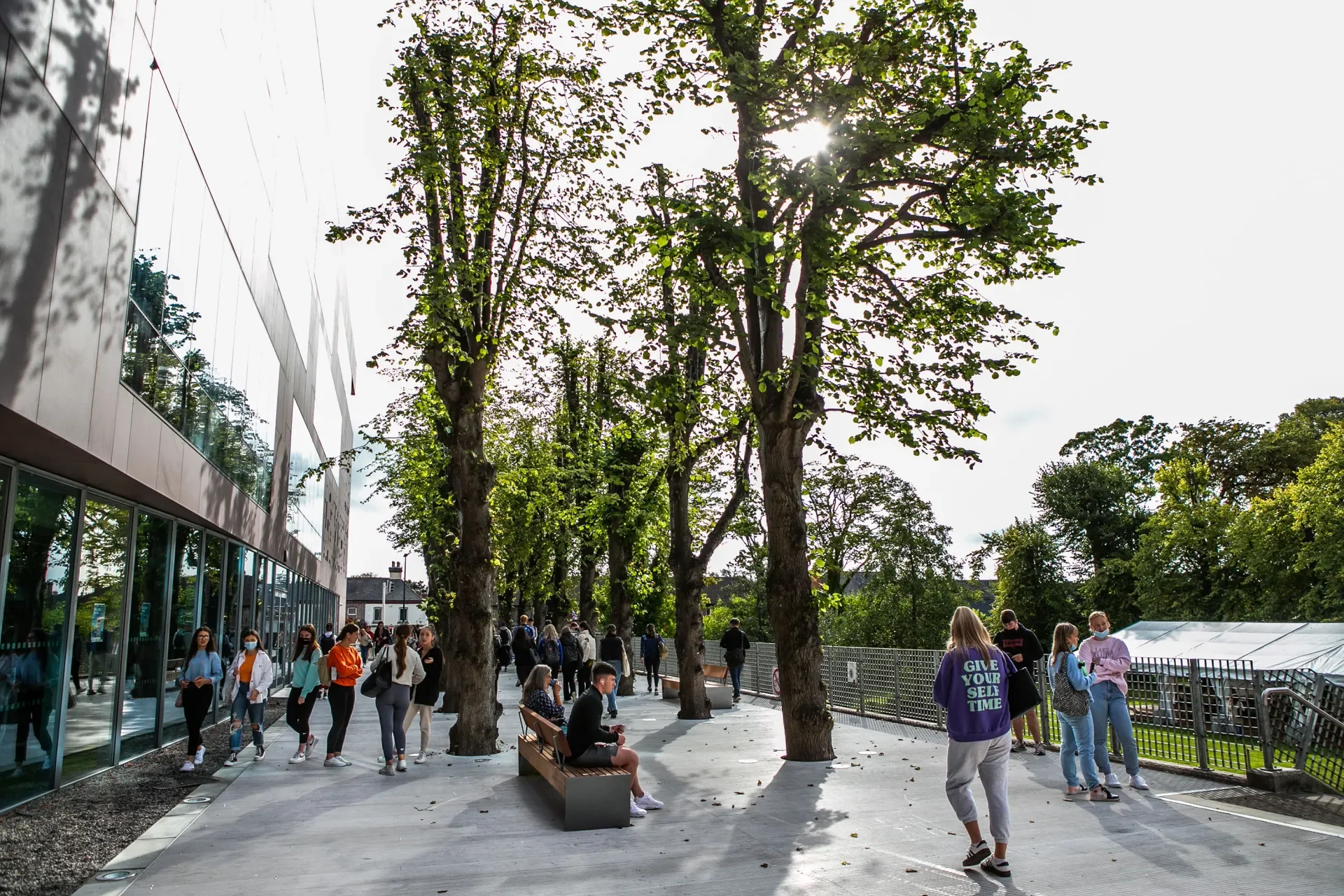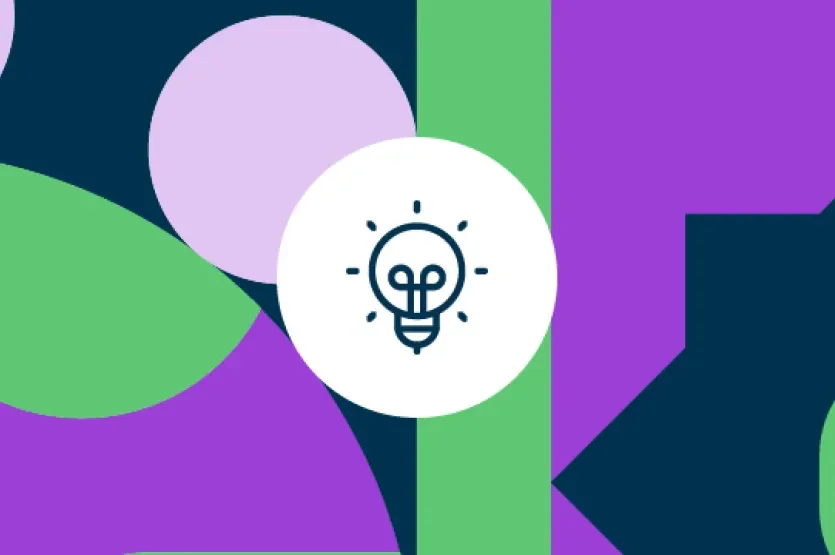Overview
In this programme, you’ll learn how to prevent and address children’s literacy difficulties, and how to effectively integrate literacy across the school curriculum. You’ll also explore ways to develop imagination and creativity with contributions from various artistic organisations such as Poetry Ireland, the Irish Museum of Modern Art and the DCU School of Arts Education and Movement.
Get set for a fulfilling career
Modules are delivered in-person and online, and consider children’s language and literacy needs in English and Irish. This part-time course offers flexible learning to accommodate working professionals.
As a graduate, you can pursue leadership roles in schools or national organisations such as the National Council for Curriculum and Assessment and the Professional Development Service for Teachers. You’ll also have the skills to work in third-level institutions, education centres, NGOs and organisations designed to improve literacy.
Why DCU
DCU People
Careers & Further Options
Careers
The Master of Education in Literacy Professional Practice (MEDLPP) programme is designed to meet the professional and personal needs of teachers and educators seeking to acquire deep expertise in literacy.
It is a research-to-practice based qualification which is intended for those who wish to interrogate the research base on the creative, aesthetic, affective and cognitive dimensions of literacy and to systematically test relevant theories and evidence-based practices and in so doing to develop new insights and ways of working that respond to the needs of children within their school and classroom contexts.
It will also support the ongoing development of key skills and dispositions in teachers relating to creative and adaptive problem solving, effective communication and ways of acting as agents of transformation and change within the system.
It is also suitable for those seeking posts of responsibility for literacy within schools, or leadership in literacy in other relevant educational contexts.
Entry Requirements
This programme is run on a cyclical basis, with the next intake in September 2025.
The programme will be open to qualified teachers. While it is primarily targeted at primary teachers, second level teachers who specialise in literacy would also be eligible. Other professionals in the education community with appropriate professional qualifications are also eligible. Standard entry procedures for international applicants and for applicants with disabilities apply.
Candidates are required to have a Level 8 qualification in education, at minimum H2.2. Relevant professional experience is desirable. Other professionals in the education community with appropriate professional qualifications are also eligible.
Due to the specialist nature of this programme, additional criteria may be used to assess suitability to undertake this programme. For further information, please contact the Programme Chair using the contact details above.
Dates for Submission of Applications
EU Applicants
This programme is run on a cyclical basis, with the next intake in September 2025.
Programme Structure
The Master of Education in Literacy Professional Practice is designed for classroom teachers who are seeking to develop deep expertise in literacy theory, research and evidence-based practices.
The programme of study draws on a wide variety of theoretical models and processes, perspectives, instructional models, curricular frameworks, and policies in relation to literacy.
Course delivery is blended with a combination of classes online and face-to-face on campus.
- Classes take place Friday evenings on Zoom 5.30 pm to 8.30 pm and Saturdays 9.00 - 4.30 approximately one weekend a month September to May
- Two of the weekends are face to face on campus (one in each semester)
- One module (EC908: Literacy across the Arts Disciplines) is offered as a five day on campus summer course
Three core modules in year one examine a range of theoretical perspectives and models underpinning literacy development in relation to the creative, aesthetic and affective dimensions of literacy as well as essential skills (alphabetics, vocabulary, fluency, comprehension and writing).
The core modules also consider the language and literacy needs of children in both English and/or Irish as L1 and L2 and the transfer of skills across languages.
A research methods module explores both quantitative and qualitative approaches to literacy research laying the foundations for the research project in year two. Participants will develop the understanding, skills and knowledge of research approaches and methodologies in the context of reflective practice and action research and the capacity to interrogate and critically reflect on their practice through systematic inquiry.
Two disciplinary modules build on the core and explore the pivotal role of language and literacy across the curriculum. The first of these modules examines theoretical perspectives on critical, visual and disciplinary literacy and provides opportunities for participants to design and implement interdisciplinary units of study. The second addresses the potential of the arts for literacy development and explores research and models for developing imagination and creativity from the perspectives of professionals within a range of artistic domains. It is offered as a week-long summer school and it is also recognised by the Department of Education and Skills for teachers' EPV days. Both modules explore a wide range of high-quality children’s literature (fiction/informational/poetry/digital) to support planning and teaching.
In year two, models of literacy leadership, whole school approaches to literacy and research on the prevention and early intervention of literacy difficulties are examined. Emphasis is placed on developing participants’ capacity to evaluate school plans for literacy and to lead literacy planning and professional development within schools. The research project provides opportunities for teachers to adopt an inquiry stance to literacy teaching and learning. Participants will systematically test relevant theories and evidence-based practices in relation to their research question and in so doing develop new insights and ways of working that respond to the needs of children within their school and classroom contexts.
Fees and Funding
Fees
How To Apply
How to Apply
- All Applicants must apply through DCU's Student Application Portal which is available here. Here's a quick step by step guide if you need help with your application.
All Applicants must submit
- Certified academic transcripts for each and every year of study, with certified English translations if applicable
- Copy of passport
Non Native English Speakers - Additional
Evidence of English competency which meets DCU entry requirements - see link
Application Queries
For EU applicant queries, please visit https://www.dcu.ie/registry/eu-postgraduate-taught-admissions or email postgraduateadmissions@dcu.ie
For non EU applicant queries, please visit https://www.dcu.ie/registry/international-admissions-undergraduate-and-postgraduate or email internationaladmissions@dcu.ie
Application Deadlines
- Closing date for applicants is 5th August 2025
Commencement of Programme
This programme will commence September 2025.
Life On Campus
At DCU, our students can expect a unique campus experience. We are known for our excellent teaching and learning facilities, our active clubs and societies, and our great social and sporting facilities. All this makes DCU an exciting place to be.
DCU has three academic campuses; Glasnevin, St. Patrick’s and All Hallows (both in Drumcondra), all close to Dublin City centre.
They can be reached by public transport, Dublin Bus and Bus Éireann, with our Drumcondra campuses a ten minute walk from Drumcondra Train Station. Glasnevin is a 20 minute walk from St Patrick’s and All Hallows. They are also linked by Dublin Bus.
Each campus has a library (O’Reilly, Cregan and Woodlock Hall), study spaces, restaurants, and on-campus residencies. There are sports facilities on Glasnevin and St. Patrick’s, and there is a dedicated sports campus, St Claire’s, located near Glasnevin on the Ballymun Road.
DCU’s 19,000 students have access to exceptional teaching and learning facilities across our three academic campuses.
These include modern learning theatres, research centres, a new media and TV studio, radio/podcast studios, computer suites and advanced labs in the areas of Languages, Engineering, Physics, Chemistry and Biotechnology, as well as a Sports Performance centre and a training hospital ward. In 2021, we opened our first virtual reality ‘Leadership Lab’, which is located in our Business School.
We continue to improve and update our facilities. For example, construction of a new world-class STEM facility is underway on the Glasnevin campus. With capacity for an extra 3,000 STEM students, this facility will advance DCU’s international reputation for excellence in science and health, computing and engineering disciplines.
Studying in DCU isn’t just about course work. The university is rich in student life and activities.
There are more than 140 clubs and societies for students in DCU, with ‘Clubs & Socs’ days taking place on both the Glasnevin and Drumcondra campuses at the start of the academic year. They span everything from rugby to rock climbing, anime to jazz.
For many students, sport is an important part of the DCU experience. DCU’s Sports Complex boasts a 25 metre swimming pool, fitness centre gym, all-weather pitches and squash courts, as well as soccer, GAA and rugby pitches. DCU Dóchas Éireann, the university’s GAA club, is the largest third level Gaelic Games club in the country. Meanwhile, DCU Athletics has been Ireland’s highest achieving university club for many years. And DCU has dozens of other clubs to get involved in, from Archery to Weightlifting.
The Glasnevin campus is home to our purpose built, state-of-the-art student centre, The U, which serves the needs of a rapidly growing student body. Here, you will find the Student Leadership and Lifeskills Centre, performing arts and cultural spaces for students and the wider community, and the Entrepreneurship and Innovation Hub. Also located on our Glasnevin campus is The Helix, our renowned performing arts centre.
On our St Patrick’s campus, we have the Java Student Hub, a vibrant, warm and welcoming space where students can meet for coffee, play music, use the projector to watch events, or just relax. The walls of the Java Hub were designed based on the cultural history of St Patrick’s Campus, including the special references to the notable sporting history and history of the arts.
We have a number of academic, professional and social supports for students.
Student Advice & Learning Skills Centre - Offers a wide range of supports and services to students and advice
The Writing Centre - drop-in writing workshops for students through the academic year
Maths Learning Centre - provides maths support for students of all ability levels with maths modules
Student Learning - facilitate the transition from passive to active learning for students at DCU, by teaching study skills, nurturing critical thinking and building student confidence.
Careers work with students to help them on their professional journey into graduate employment.
Our student support team offers a comprehensive support programme, helping students make that all important transition into university life and focusing on building confidence and skills which are key to success at third level.

DCU St Patrick's Campus
FAQs
What courses are offered by the DCU Institute of Education?
DCU Institute of Education brings together students of education and provides a rich menu of undergraduate courses across all sectors from early childhood, to primary and post-primary and further and higher education. We offer a range of taught and research postgraduate courses at doctoral, masters, diploma and certificate level and have a distinguished record in providing continuing professional development.
Is there Garda vetting for students who study DCU Institute of Education courses?
Garda vetting is required for all students who have unsupervised access to children and vulnerable adults as part of their studies at DCU. Applicants must successfully pass the Garda vetting process in order to complete the registration process.
What are the potential teaching pathways for primary, post-primary and further education and training offered by DCU?
Primary Teaching Pathways
Undergraduate*
Postgraduate**
- Professional Master of Education (Primary Teaching) - DC970
* Please ensure that you consult minimum entry requirements and CAO points for all undergraduate programmes
** Please ensure that you consult minimum entry requirements for all postgraduate programmes
Post-Primary Teaching Pathways
Undergraduate*
- Bachelor of Religious Education & English or History or Music - DC010 | DC011 | DC012
- Bachelor of Education in Gaeilge and French or German or Spanish - DC013
- Bachelor of Education in Technology, Engineering and Graphics - DC015
- Bachelor of Science (Hons) in Science Education - DC203
- Bachelor of Science (Hons) in Physical Education with Biology - DC205
- Bachelor of Science in Physical Education with Mathematics - DC206
Postgraduate**
- Professional Master of Education (Post-Primary Teaching) - DC905
* Please ensure that you consult minimum entry requirements and CAO points for all undergraduate programmes
** Please ensure that you consult minimum entry requirements for all postgraduate programmes
Further Education and Training Teaching Pathways
Undergraduate*
- BSc (Hons) in Education and Training (Further, Adult and Continuing Education) - DC235
* Please ensure that you consult minimum entry requirements and CAO points for all undergraduate programmes









